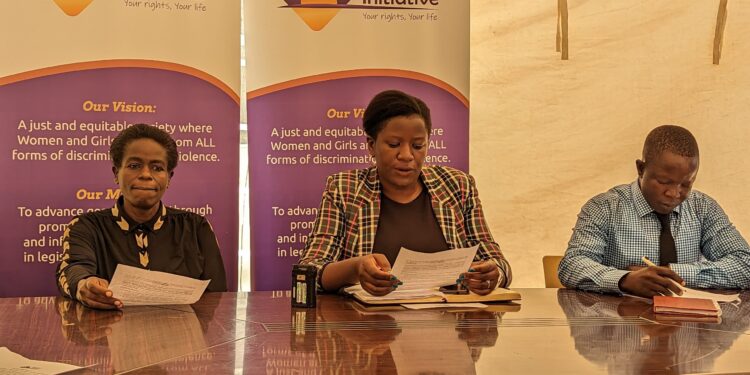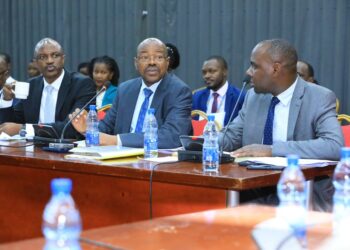As Uganda joins the global community in observing Menstrual Hygiene Day on May 28th, the leaders from the Women’s Probono Initiative (WPI) have tasked the government to fulfil the long promise it made to provide free sanitary pads to school-going girls
In 2015, during a campaign in the Lango sub-region, President Museveni made a pivotal promise: if re-elected, his government would provide sanitary pads to school-going girls. This pledge was seen as a significant step towards addressing menstrual health challenges and promoting gender equality in education. However, nearly a decade later, this promise remains unfulfilled, leaving many young girls in Uganda struggling with period poverty.
Rahom Bukirwa from WPI emphasized the ongoing struggle: “As we speak, there remains a vast majority of girls in school having to skip classes when undergoing their menstrual period.
The Unmet Promise and Its Implications
According to Rahom Bukirwa, the Ministry of Education and Sports attempted to address this issue by sending out a circular on menstrual hygiene management in schools in 2015. Despite these efforts, many girls still miss school during their menstrual periods due to a lack of sanitary pads. This situation is exacerbated by cultural taboos that depict menstruation as dirty and shameful, further isolating girls and hindering their education.
“Menstrual health is not just a hygiene issue; it is intrinsically linked to the overall well-being and educational opportunities of young girls. Without proper menstrual health management, girls are likely to miss school, perform poorly, and in some cases, drop out entirely. This perpetuates a cycle of poverty and gender inequality,” she told the media on Tuesday.
Mrs Bukirwa revealed that Uganda has a predominantly young population, with over 56 per cent of its people under the age of 18 and nearly half under the age of 10. Despite this youthful demographic, many young people face significant challenges, including poverty, early marriages, teenage pregnancies, gender-based violence, and limited access to secondary education. These challenges are compounded by inadequate menstrual health management.
A 2020 study by the Ministry of Education and Sports highlighted the distressing state of menstrual health in Uganda. Over 50 per cent of women and girls reported feeling stressed, worried, scared, or isolated during menstruation, with only 15 per cent receiving any form of psychosocial support. This underscores the urgent need for comprehensive menstrual health initiatives.
Bukirwa remarked, “The education system still shies away from proper sex education including menstrual health due to cultural taboos surrounding the conversation that depict menstruation as dirty, shameful, and as something which should be hidden.”
She noted that under Article 33 of the 1995 Constitution of Uganda, the state is committed to ensuring women have equal status with men and providing the facilities and opportunities necessary for their welfare and advancement. However, a review of district development plans reveals that menstrual health is not prioritized or adequately budgeted for, often being implied within other programs rather than addressed directly.
Bukirwa criticized this oversight: “The Government Menstrual Hygiene Charter of 2015 is therefore simply words on paper and is pointless without actual implementation.”
Article 21(4) of the same Constitution obligates the Parliament of Uganda to implement policies aimed at addressing social, economic, educational, and other imbalances. Therefore, the government must invest in menstrual health as a neglected yet crucial component affecting many school-going girls.
She remarked that it is crucial to renew the call for the government to fulfil its promise of providing free sanitary pads to school-going girls. Because this action would significantly alleviate period poverty and its associated inequalities.
Bukirwa passionately urged, “We continue to call upon the President and the Office of the First Lady to honour their pledge to distribute free sanitary pads to girls in schools to help alleviate the inequality perpetuated by period poverty in Uganda.”
She also urged the government to prioritise menstrual health as a human right since it has far-reaching negative impacts on the lives of young girls and women. It restricts their mobility, freedom, and choices; affects their attendance and participation in school and community life; compromises their safety; and causes stress and anxiety.
“Addressing this issue is not just a matter of fulfilling a campaign promise; it is about ensuring that every girl in Uganda has the opportunity to realize her full potential without the barriers imposed by period poverty,” she noted.
She re-echoed that Gen Museveni’s government must take immediate and concrete steps to honour its commitment to providing free sanitary pads to school-going girls. Because it will not only improve the lives of countless young girls but also contribute to a more equitable and just society. “It is time for words on paper to translate into action and reality.”
Do you have a story in your community or an opinion to share with us: Email us at editorial@watchdoguganda.com













